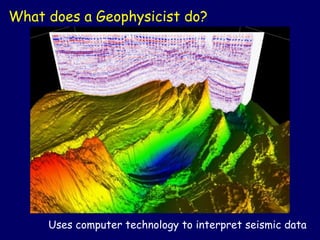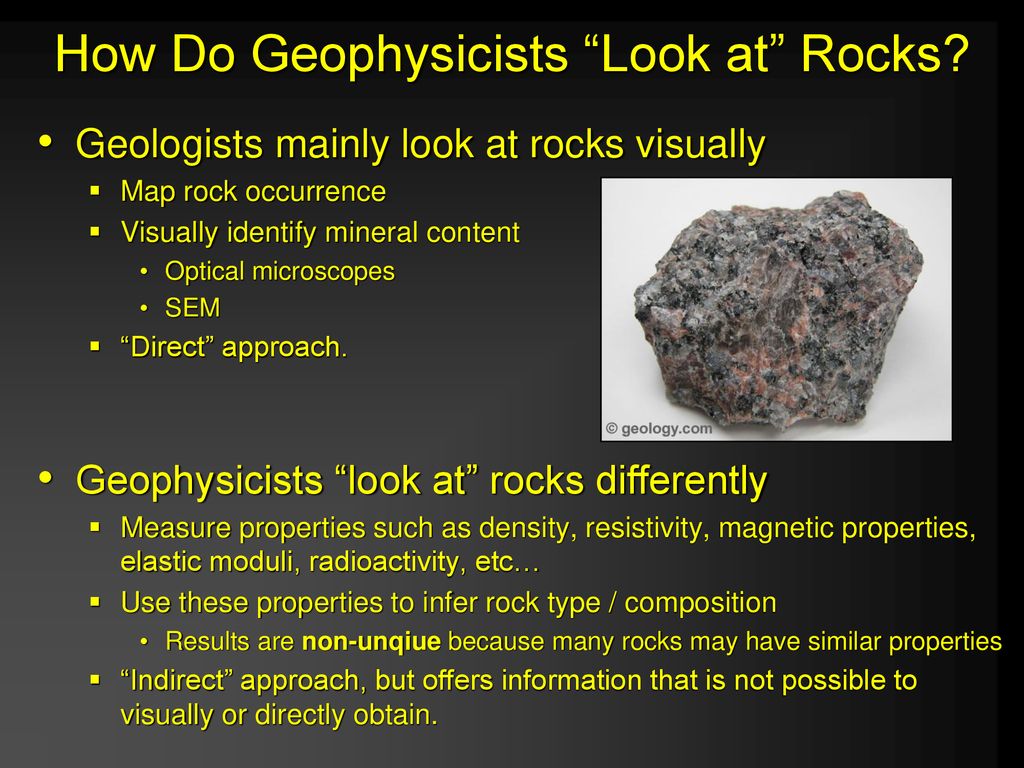All Categories
Featured
Table of Contents
Geophysical Consulting in Inglewood Western Australia 2023
This work is progressively contracted out, so consultancies offer another source of work. Consultancy companies differ in size, from very small companies to large multinationals. Some consultancies are rather specialised in using specific geophysical strategies or operating in specific locations, while others provide a more diverse series of services to their consumers.
The extraction of gas from landfill websites is another area of employment and this may grow in the future. Exploration companies might carry out work for building firms, water companies, mining companies and ecological agencies, so geophysicists might be used in any of these settings. Other employers consist of: geological surveysgovernment bodies and agenciesuniversities and research institutes.


Jobs may be noted in the oil and gas sector press. Recruitment is affected by oil price fluctuations and the level of competition for positions differs depending on this. Professions Days, which cover the complete range of geoscience careers and are usually attended by a number of key market employers, are run by The Geological Society.
Geophysicists in Bayswater WA 2023
A few of the large oil and gas companies use a full two-year structured training programme across the breadth of geophysics, consisting of the chance to experience work in numerous groups prior to specialising in one area. Your training may consist of work on: existing wellsmagnetic and gravitational possible field information analysisresearchrock analysis. However, it's more typical for your initial training to be offered on the task.

There may be a probationary period during which you work alongside a knowledgeable associate. Competency-based appraisals take place regularly in many companies. In smaller companies, and for academic posts, there is unlikely to be any formal training - you'll be expected to start work straightaway and choose up skills as you go along.
If you work for a smaller company, you may find that you require to take responsibility for setting up and moneying your own development and training. If you have a geology degree, membership of The Geological Society can be useful for networking and for keeping up to date with the market.
Geophysical Survey And Remote Sensing Techniques in Cooloongu WA 2020
You may likewise discover it beneficial to sign up with the PESGB (The Petroleum Exploration Society of Great Britain, which has a geophysics special interest group. After a probationary period, and when you have actually gained some experience, you could advance to senior geophysicist, then team leader and then into a senior role in management.
The ease of motion in between roles depends on the company structure. Research study at Masters or Ph, D level in a subject associated to geophysics or geosciences might assist with your profession development and progression. The employment market within the oil and gas industry is very dependent on price and this may impact your chances for profession development.
Not all tasks are reliant on the oil and gas industries. For knowledgeable geophysicists, freelance consultancy provides a good path for career development. You can also specialise in a particular area of geophysics. As a geophysicist, you're likely to have a number of jobs throughout your working life. Worldwide movement is vital for handling peaks and troughs in various nations at different times.
Geophysical Survey And Remote Sensing Techniques in Lakes Oz 2020
From geophysics, it's possible to concentrate on seismology (completing further training to end up being a seismic interpreter) or to move into related areas such as engineering geology or threat forecast.
Deciding what to study in college is a hard option. Even if you understand that your field of interest lies in science, what program of study is ideal for you? If you make the decision to significant in physical and life sciences and pursue a profession as a geophysicist, you're getting ready for an amazing and lucrative occupation.
The very first step to achieving your objective of becoming a geophysicist is making a degree. Even for entry-level positions in the field of geoscience, you'll require a bachelor's degree (a geophysicist college degree) from a certified college or university. Geophysicists need to be able to: analyze rocks, photos, and other pieces of information perform research study both in the field and in labs create maps and charts of their findings compose reports To accomplish all this, trainees require a specialized education for geophysicist professions.
As specified above, you'll require a bachelor's degree in geoscience or an associated discipline, such as a physical science or a natural science, to land an entry-level task. But trainees can also prepare by majoring in topics like: Biology Chemistry Computer science Engineering Mathematics Physics The above geophysicist majors offer a more generalized method to a single clinical discipline, but a lot of programs require students to take one or more geology course.
Latest Posts
Geophysicist Jobs in North Perth Australia 2021
Geophysical Survey Definition in Warnbro Western Australia 2021
What Is Geophysics? in Carlisle Australia 2020